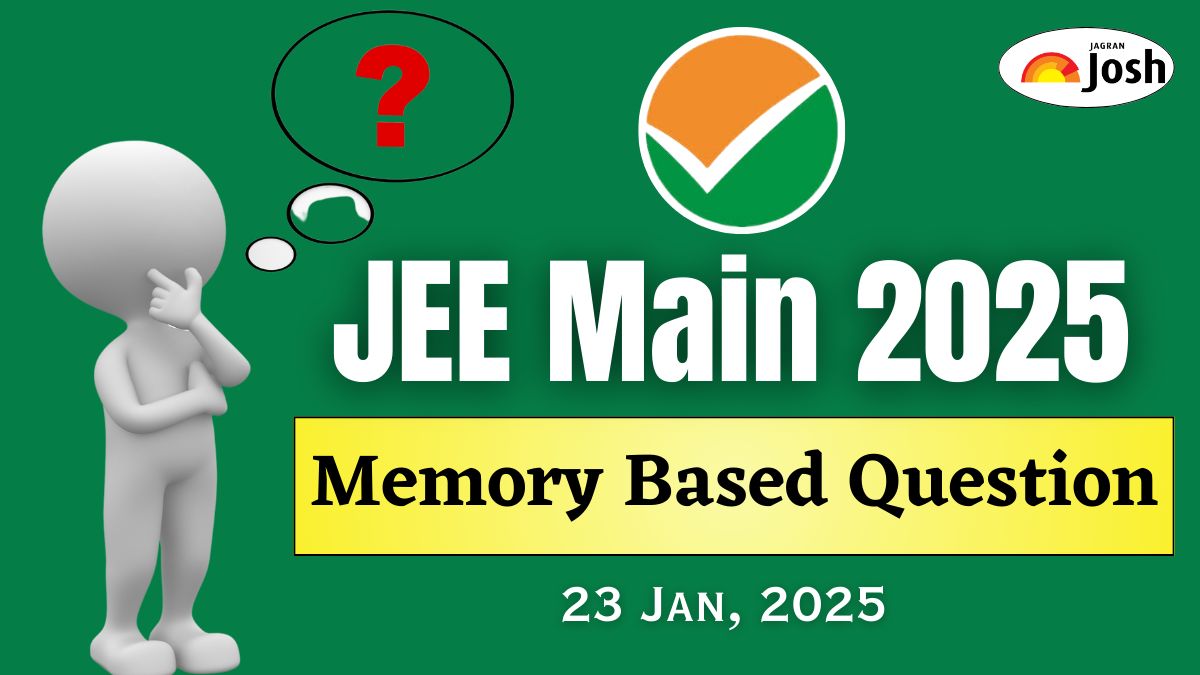 |
|
The article details the memory-based questions from the JEE Main 2025 exam held on January 23rd, 2025, for both Shift 1 and Shift 2. This information is crucial for students who took the exam, allowing them to assess their performance and understand the difficulty level of the test. The article emphasizes that the questions are based on student recollections and are not official, but rather serve as a representation of the types of questions asked. This highlights the limitations of relying on memory-based questions for accurate assessment, as inaccuracies and omissions are possible. The importance of understanding the limitations is key to interpreting the information provided.
The structure of the JEE Main 2025 exam is clearly outlined: Paper 1, conducted online, was administered across various exam centers. The exam consisted of three sections: Mathematics, Physics, and Chemistry, each with 30 questions. Twenty questions were multiple-choice questions (MCQs) while the remaining ten involved providing numerical answers. The marking scheme awarded four marks for each correct answer and deducted one mark for each incorrect answer. The exam duration was three hours, and multiple languages were offered. This detail provides a context for understanding the scope and structure of the exam and allows for a more informed interpretation of the memory-based questions.
The article repeatedly emphasizes the provisional nature of the memory-based questions. This is vital because the information's accuracy and completeness are subject to the recall ability and potential biases of the students providing the information. It's crucial for students to approach this data with caution, acknowledging the inherent limitations. Relying solely on this information for comprehensive analysis would be insufficient. The article clearly states that this is not an official question paper and functions solely as a helpful resource for comparison and a general idea of question types. It encourages students to stay tuned for further updates and detailed solutions. This approach promotes responsible information consumption and understanding of the limitations.
The article's focus on providing memory-based questions, combined with the promise of future updates with detailed solutions, suggests a strategy aimed at supporting student preparation and performance analysis. This supportive approach aligns with educational resources designed to help students understand exam patterns and identify areas for improvement. This feature distinguishes this article from those purely focused on reporting exam results. By providing memory-based questions and promising solutions, the article aims to create a valuable learning resource for future exam preparation. This proactive approach to educational support is valuable and suggests a focus beyond simply reporting exam details.
The inclusion of links to further information such as preparation tips and expected cut-off marks suggests that the article is part of a larger resource aimed at comprehensive JEE Main preparation and support. This holistic approach aims to serve a wider range of student needs, encompassing the pre-exam period, the post-exam analysis, and overall exam preparation strategies. The article strategically utilizes various keywords to maximize its visibility in online searches, thus potentially reaching a broader audience of students and educators. This SEO strategy aims to make the content easily accessible to those seeking information about the JEE Main exam and its related resources.
